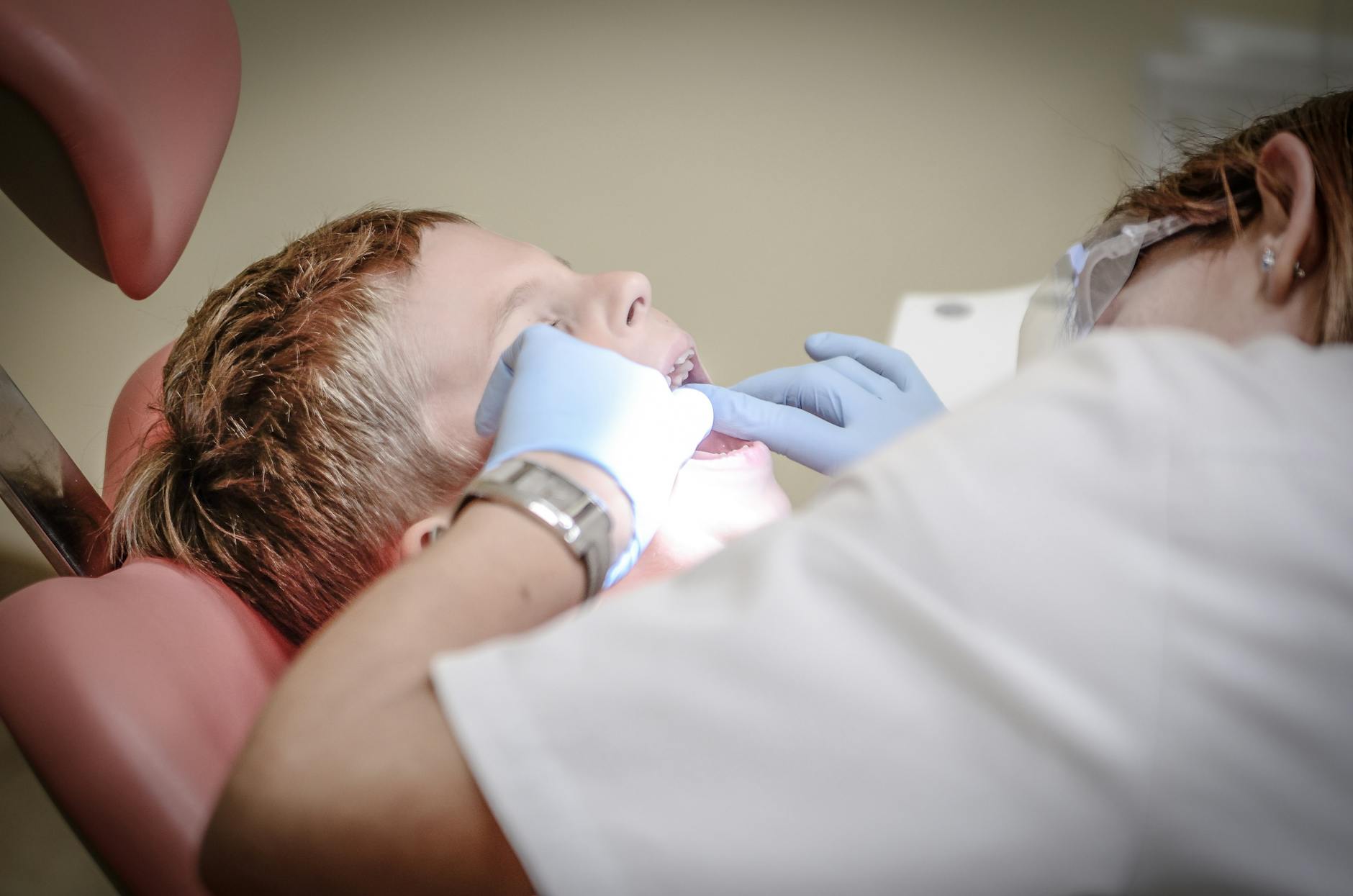
Pediatric dentistry focuses on the unique needs of children’s teeth
Pediatric dentistry is specifically designed for children, unlike regular dentistry, which caters to adults. Children’s teeth are different in structure and development. They go through various stages of growth, from baby teeth to adult teeth, and these stages require different approaches. A pediatric dentist understands how to treat these developmental changes and how to guide a child’s oral health from infancy through adolescence. Regular dentists are trained to handle adult teeth and issues, but pediatric dentists specialize in the care and development of young mouths.
Children’s teeth are unique, and they need a specialized approach to grow healthy and strong.
Pediatric dentists are specially trained to handle children’s behavior
One of the biggest differences between pediatric dentistry and regular dentistry is the focus on behavior management. Children often have fears or anxieties about visiting the dentist. A pediatric dentist is specially trained to make dental visits a positive experience. They know how to communicate with children, use child-friendly language, and make the process fun and comfortable. They also know how to handle children who may be afraid or uncooperative, creating a stress-free environment.
Making children feel comfortable at the dentist is essential to building a lifetime of positive dental habits.
Pediatric dentists are experts in preventing childhood dental issues
Pediatric dentistry is not just about treating problems—it’s about preventing them. Pediatric dentists educate both parents and children about the importance of oral hygiene, diet, and habits that can affect dental health. They focus on prevention from the very start, teaching children how to brush properly, what foods to avoid, and the importance of regular check-ups. Early intervention is key to avoiding issues like cavities, misalignment, and gum disease, and pediatric dentists are trained to spot potential problems before they become serious.
Prevention is a cornerstone of pediatric dentistry, ensuring that children grow up with strong, healthy teeth.
Pediatric dentists treat more than just teeth—they focus on overall oral health
Pediatric dentists understand that oral health affects the entire body, especially in growing children. They treat not only the teeth but also the gums, jaw, and surrounding tissues. They focus on the alignment of baby teeth and how they affect the permanent teeth that will eventually come through. Pediatric dentists also monitor oral habits such as thumb-sucking, tongue thrusting, and pacifier use that can affect a child’s oral development.
A pediatric dentist’s job is not just to treat the teeth but to ensure the health of the entire oral system.
Early dental care sets the foundation for a lifetime of healthy teeth
Starting dental visits early, ideally by the age of one, helps set the foundation for a lifetime of good oral health. Pediatric dentists emphasize the importance of establishing a dental routine early on. These early visits not only help prevent cavities but also give children the chance to become familiar with dental care and build positive associations with the dentist. The goal is to establish lifelong healthy habits that will carry into adulthood.
Early visits to a pediatric dentist lead to better long-term oral health outcomes.
Pediatric dentists are experts in dealing with dental developmental issues
Children’s teeth go through various stages of growth, and sometimes developmental issues arise. Pediatric dentists are specially trained to handle issues like early loss of baby teeth, crooked teeth, or problems with bite development. They can also provide treatments such as dental sealants, fluoride treatments, and space maintainers that are essential to guiding proper dental growth. Unlike regular dentists, pediatric dentists are experts in the specific needs of growing mouths and teeth.
From misalignment to developmental delays, pediatric dentists know exactly how to address unique concerns.
Pediatric dentists provide treatments for children’s specific dental conditions
Pediatric dentists are trained to handle a variety of conditions that specifically affect children’s teeth. These conditions include early childhood cavities, teething issues, thumb-sucking, and even speech development concerns. They understand the importance of addressing these problems early, as they can affect a child’s overall oral and physical development. Pediatric dentists also deal with trauma to the teeth, whether it’s from a fall or injury during sports, ensuring the right care is given.
Children’s dental problems are unique, and pediatric dentists have the right expertise to handle them.
Pediatric dental offices are designed for comfort and fun
Another significant difference between pediatric dentistry and regular dentistry is the office environment. Pediatric dental offices are designed with children in mind. They often have colorful decor, fun toys, and friendly staff members to help kids feel at ease. The goal is to create an environment that is welcoming and comforting, so children aren’t afraid to come back. This positive atmosphere encourages children to develop good oral health habits and feel confident about visiting the dentist.
A kid-friendly environment helps create a positive association with dental care from a young age.
Regular dentists aren’t always trained to handle children’s specific needs
While general dentists can treat children, they don’t have the specialized training that pediatric dentists do. Pediatric dentists are trained to handle the physical and emotional aspects of treating children’s teeth. They know how to communicate with children and parents, and they are more equipped to handle behavior challenges during treatment. They also have advanced training in pediatric sedation and pain management, ensuring that children are as comfortable as possible during procedures.
Pediatric dentists are equipped with the expertise and training to address children’s dental needs in a way that general dentists cannot.
Pediatric dentists understand the importance of early orthodontic evaluation
Pediatric dentists also play a crucial role in identifying orthodontic needs early on. As children grow, their teeth and jaws develop in unique ways. Pediatric dentists can identify problems like crowding, overbites, or underbites and refer children for early orthodontic evaluations when necessary. They help ensure that children receive the right care at the right time, which can prevent the need for more extensive orthodontic treatments later on.
Early orthodontic evaluations can help avoid more complex dental issues as children grow.
